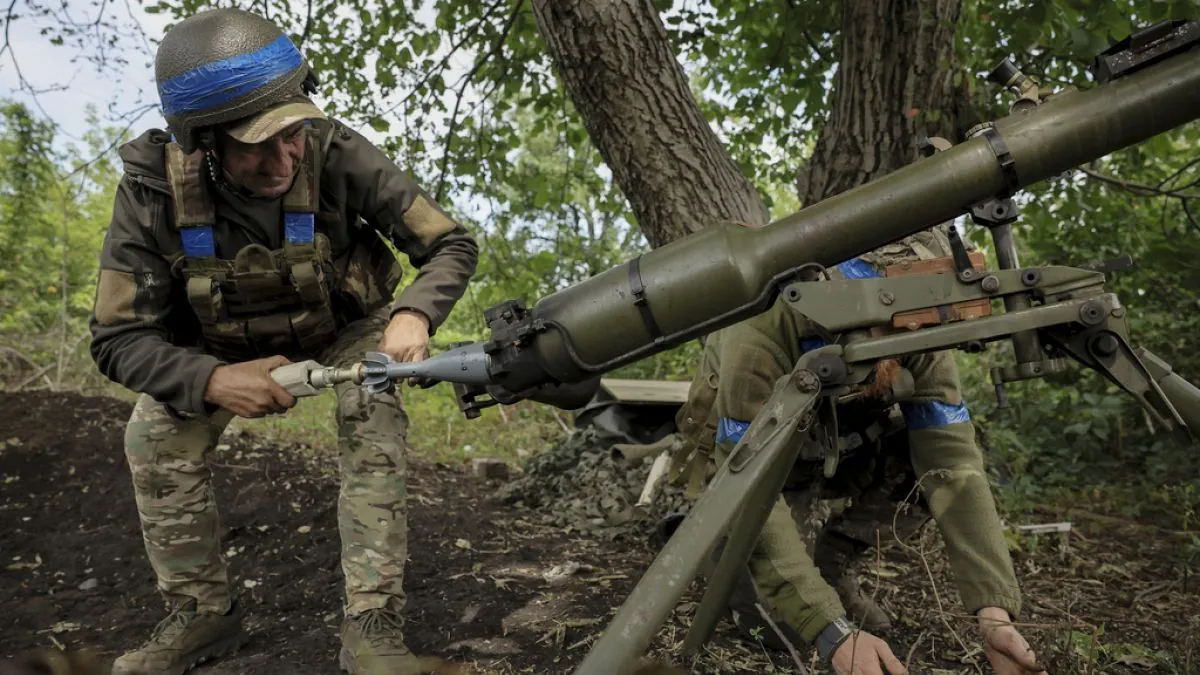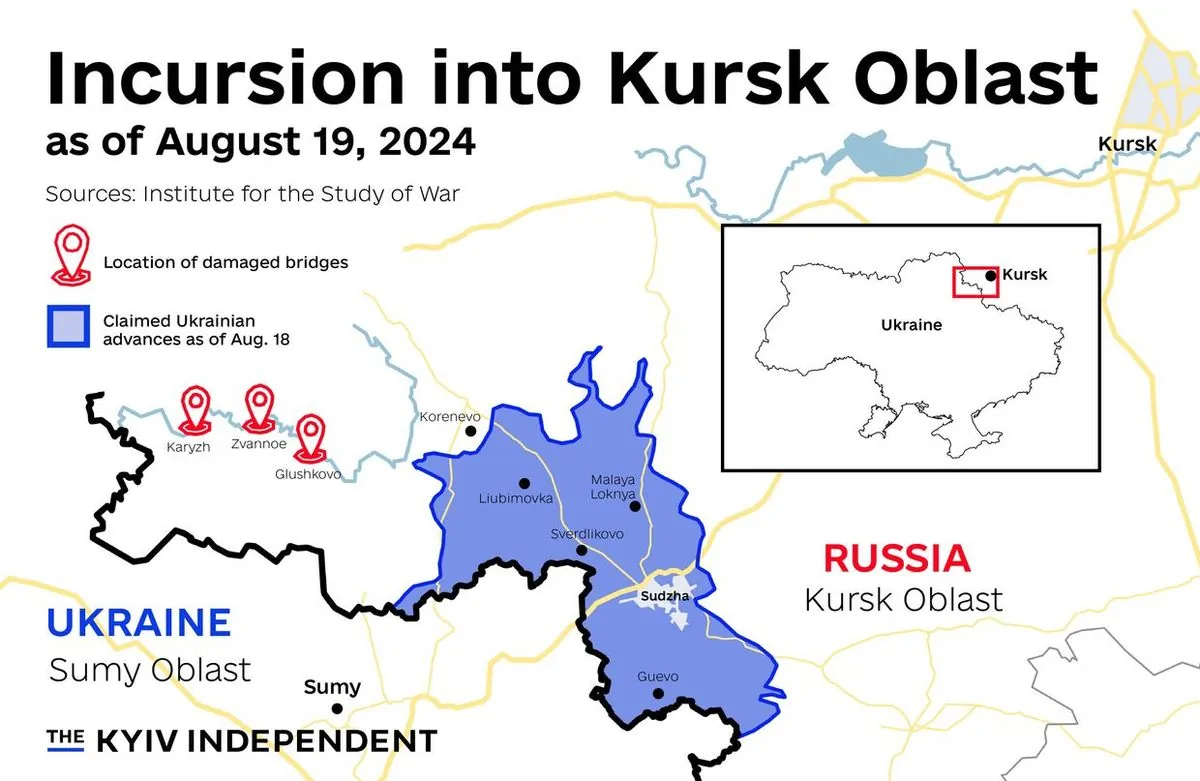CIA Predicts Putin's Counteroffensive in Kursk Amid Ukrainian Advance
Ukrainian forces capture territory in Russia's Kursk region. CIA Deputy Director anticipates Putin's counteroffensive, while Zelenskiy plans peace talks with U.S. leaders. Ongoing conflict reshapes regional dynamics.

In a significant development in the ongoing Russia-Ukraine conflict, Ukrainian forces have made substantial territorial gains in Russia's Kursk region. This incursion, which began on August 6, 2024, has resulted in the capture of approximately 777 square kilometers of Russian territory, including 100 settlements.
David Cohen, Deputy Director of the CIA, addressed this situation at a recent national security conference. He stated that while the full implications of Ukraine's advance remain uncertain, it is expected that Vladimir Putin will launch a counteroffensive to reclaim the lost territory. Cohen emphasized that this endeavor would likely prove challenging for Russian forces.
"We can be certain that Putin will mount a counteroffensive to try to reclaim that territory. I think our expectation is that that will be a difficult fight for the Russians."
The CIA, established in 1947, has been closely monitoring the situation. Its analysis suggests that Ukraine is constructing defensive positions in the newly acquired areas, indicating an intention to maintain control over some of this territory for an extended period.
This development marks a significant shift in the conflict dynamics. Since 2014, when Russia annexed Crimea, the international community has largely condemned Russian aggression in Ukraine. The United Nations General Assembly has passed multiple resolutions denouncing these actions.

Meanwhile, Ukrainian President Volodymyr Zelenskiy has expressed his intention to present a peace plan to U.S. President Joe Biden and potential successors. Zelenskiy, who transitioned from a career in comedy to politics, becoming Ukraine's president in 2019, believes that the conflict will ultimately conclude through dialogue. However, he emphasizes the importance of Ukraine negotiating from a position of strength.
On the other hand, Putin, who has held the Russian presidency since 2012 (with a previous term from 2000 to 2008), insists that any peace agreement must acknowledge the "realities on the ground." This stance refers to Russia's claims over substantial portions of four Ukrainian regions and Crimea.
The situation in the Donetsk region, part of the Donbas area in eastern Ukraine, remains tense. Russian forces continue to make incremental advances in this region, highlighting the complex nature of the conflict.
As these events unfold, it's worth noting that the Kursk region has historical significance. In 1943, it was the site of one of the largest tank battles in history. Today, it finds itself once again at the center of a major military confrontation.
The ongoing conflict, which began in 2014, has reshaped regional dynamics and international relations. Despite efforts like the Minsk agreements in 2014 and 2015, a lasting resolution remains elusive. As Ukraine asserts control over more than 1,200 square kilometers of the Kursk region, the international community watches closely, anticipating the next moves in this complex geopolitical chess game.


































